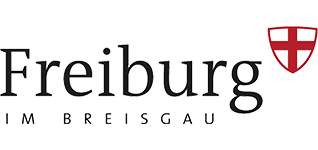City of Freiburg-im-Breisgau

Freiburg, a pioneer in environmental policy, has been integrating sustainable development into its urban policy for decades. That is why it is not surprising that it has the title of eco-metropolis. Today, the German city is aiming for carbon neutrality by 2050. To achieve this goal, the city is focusing its actions on three key themes: transport, housing and energy, and natural resource management.
Eco-citizen transport
As far as transport is concerned, the eco-metropolis continues to restrict its car traffic. To this end, car parking spaces are being converted into public spaces. Streets close to residential areas are being traffic-calmed, 30 km/h speed limits are also being introduced on the main traffic axes, and (new) alternative means of transport are being expanded. Freiburg offers a well-developed network of public transport far into the surrounding region. The city also has an extensive network of pedestrian and cycle routes. Freiburger cover more than a quarter of all their journeys by bicycle.
Passive housing and local renewable energy
Housing in Freiburg is optimised from an energy point of view. Since 2011, new buildings and renovations have had to meet low energy consumption criteria. But even before that, the city was a pioneer in setting new building standards. Freiburg has the world’s first multi-family passive house in timber construction, the first PlusEnergyHouse neighbourhood or the first high-rise building in passive house standard. The electricity and heat consumed in the buildings is more than 50% produced locally. Solar and wind power plants, co-financed by the citizens, complete the energy sources of the city, which has become a leader in the use of solar energy.
Sustainable protection for the Freiburger environment
Finally, the city has placed more than a half of its natural territory under protection. The Freiburg city concil has established strict sustainability criterias for the responsible management of the 5,200 ha of municipal forest. Indeed, Freiburger policies treats this natural space as a place of recreation, as an ecological reservoir and as a commercial resource for the local economy. The other regulated resource is water. Freiburg has banned nitrates and phosphates from its crops and has set up a system for recycling and recovering rainwater. In this way, the city is working to meet its long-term commitments.
Sources : Wikipedia, Freiburg official website ; Website of Deutsche Welle (DW) ; The website maintained by Freiburg City Council, Green City Freiburg
 Germany
Germany